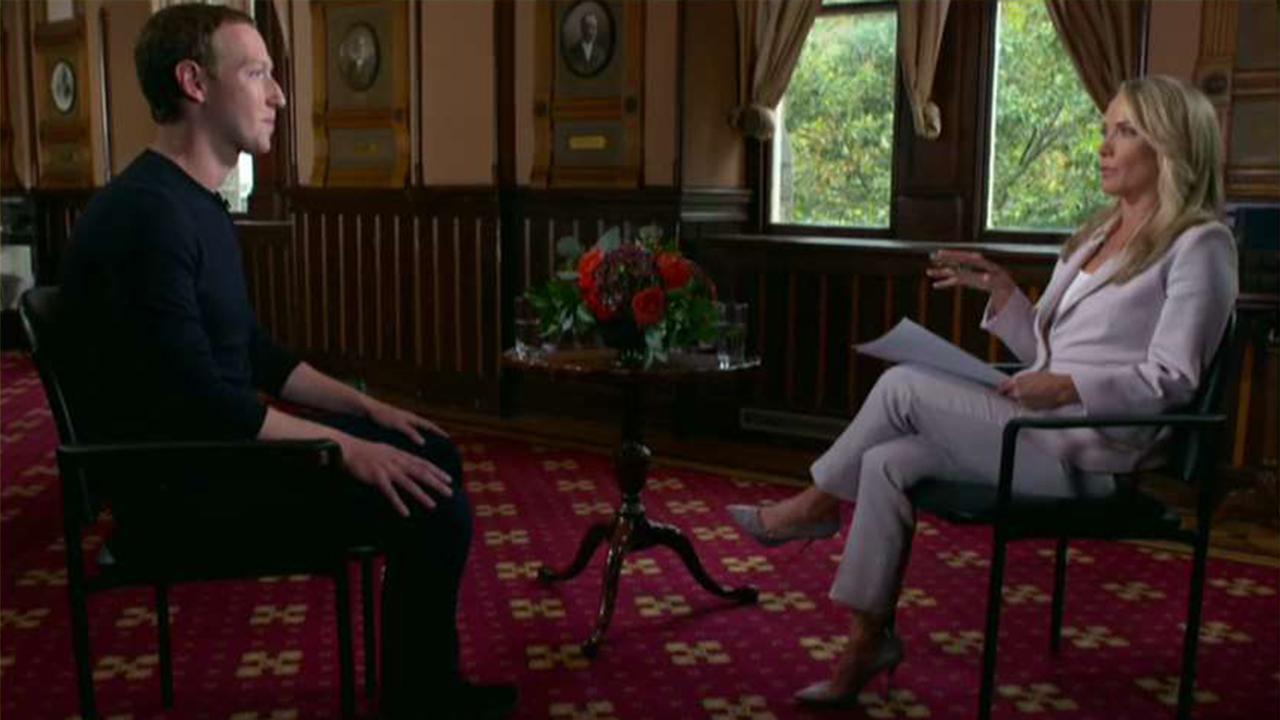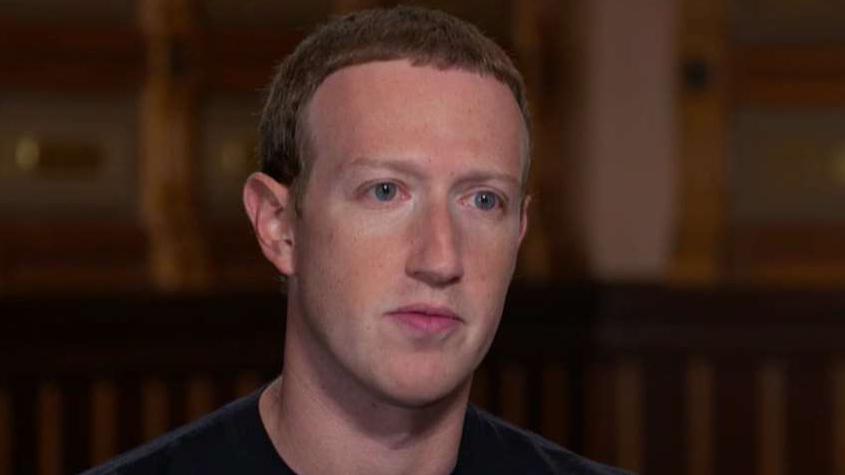Mark Zuckerberg interview: Key moments from exclusive Fox News sit-down
Facebook CEO Mark Zuckerberg defended his company’s business practices in an exclusive interview with Fox News’ Dana Perino as it faces unprecedented bipartisan scrutiny ahead of the 2020 presidential election cycle.
A $5 billion settlement with the Federal Trade Commission last summer over data privacy violations has done little to satisfy critics of the social media giant. Within the last few months, Facebook has faced repeated criticism from President Trump over an alleged conservative bias on its platform, a pair of federal antitrust probes and lingering concerns about its ability to prevent bad actors from influencing its platform during the upcoming election.
“I think that there are a number of real issues right now. And you know, earlier this year I actually I wrote an op-ed calling for four areas where I thought the Internet would benefit from the government setting some clear rules and was around, you know, what content is permitted — permissible — in elections and ads, some about content in general, privacy and data portability,” Zuckerberg said. “We as a company have the greatest responsibility here to make sure that we proactively make sure that there isn't harm or danger happening on our platform.”
Aside from providing specific details about Facebook’s efforts to reassure the public, Zuckerberg touched on the state of social media and the tech industry as a whole.
FOX Business breaks down key moments from Perino’s exclusive interview with Zuckerberg.
Stocks In This Article:
On whether Facebook, other tech giants should be broken up
Democratic presidential frontrunner, Elizabeth Warren, unveiled a proposal last March that would place limits on major tech companies such as Facebook, Amazon and Alphabet, the parent of Google. Part of her plan would require Facebook to unwind what she called "anti-competitive" mergers, such as its past acquisitions of Instagram and WhatsApp.
Facebook is also facing pressure from the Trump administration. Company executives confirmed last July that both the FTC and federal Justice Department had opened antitrust probes into its business practices.
Zuckerberg has advocated for federal regulation of the tech industry, but he told Perino that he does not believe that breaking up Facebook would solve the industry's underlying problems.
"I don't think that that's the right answer. You know, I think that there are real issues there. There are issues around protecting elections and what political discourse should be allowed. There's issues around what content should be allowed. There are privacy questions. There's [sic] also questions around, people should also be able to take their data to other apps for, you know, to facilitate innovation and competition," he said. "And, you know, academic research that we can advance society that way. But I basically think each of those problems requires work on our part, but also clearer rules that I think have to come from either the government or some kind of independent self-regulatory situation."
On data privacy
Facebook has made heavy investments to reassure the public and federal regulators about its data privacy practices in the wake of the 2018 Cambridge Analytica scandal, in which a British data firm improperly accessed the personal information of up to 87 million users. Under the terms of Facebook’s $5 billion FTC settlement, Zuckerberg must personally certify compliance with FTC privacy guidelines on a quarterly basis or risk penalties.
Zuckerberg reiterated to Perino that Facebook does not sell user data, adding that the company has enacted a “rigorous privacy program” at the FTC’s behest.
“I understand that people have a lot of concerns about this. And in the past, we've made mistakes and we need to make sure that we can earn people's trust,” he said. “And we'll do that by operating at a level of rigor and having a privacy program that sets a new standard for the industry over time.”
On whether billionaires should exist
Wealth inequality has emerged as a major topic of debate in Democratic presidential debates, with Sen. Bernie Sanders, an independent from Vermont, arguing that billionaires should not exist. Zuckerberg has a personal net worth estimated at about $70 billion.
"I don't think that in some cosmic sense that anyone deserves to have billions of dollars. There are a lot of people who do really good things and kind of help a lot of other people. And you get well compensated for that. But I mean, it's some level that's really a lot of wealth," Zuckerberg said. "It's not necessarily that I agree with some of the policy prescriptions that some of these folks are putting forward. I mean, some people think that, OK, well, the issue or the way to deal with this accumulation of wealth is let's just have the government take it all."
On conservative bias in Silicon Valley
Trump is one of several conservative leaders to suggest in recent months that tech firms based in Silicon Valley — especially social media platforms such as Facebook, Google and Twitter — are inherently biased against conservatives. The president has accused Twitter of “shadow-banning” conservative voices on its platform and warned in 2018 that tech giants “better be careful” about their practices.
“I don’t think that the services themselves — I haven’t seen a lot of data — that suggests that there’s a negative impact. In fact, a lot of conservative media does quite well on social media, not just Facebook but the others as well,” Zuckerberg said. “But look, I mean, California is an overwhelmingly left-leaning place. If you look at the political donations from the tech companies, 90 percent of them go towards Democrat candidates, so I understand why people would ask the question of: ‘Are my ideas getting fair shake?'
“All that I can say on this is: this is something I care deeply about," he added. "I want to make sure we can be a platform for all ideas.”
On whether Twitter should shut down President Trump’s account
Democratic presidential candidate Kamala Harris has publicly called on Twitter to shut down President Trump's account, arguing at a debate this week that the president uses the platform to "openly intimidate witnesses, to threaten witnesses, to obstruct justice, and he and his account should be taken down."
GET FOX BUSINESS ON THE GO BY CLICKING HERE
Zuckerberg pushed back on the notion that social media platforms should play a role in policing political discourse for public figures.
“My belief is that — in a democracy — I don’t think that we want private companies censoring politicians in the news," he said. "I generally believe that as a principle. People should decide what is credible and what they want to believe, who they want to vote for. And I don’t that should be something that we want tech companies or any kind of company doing."





















